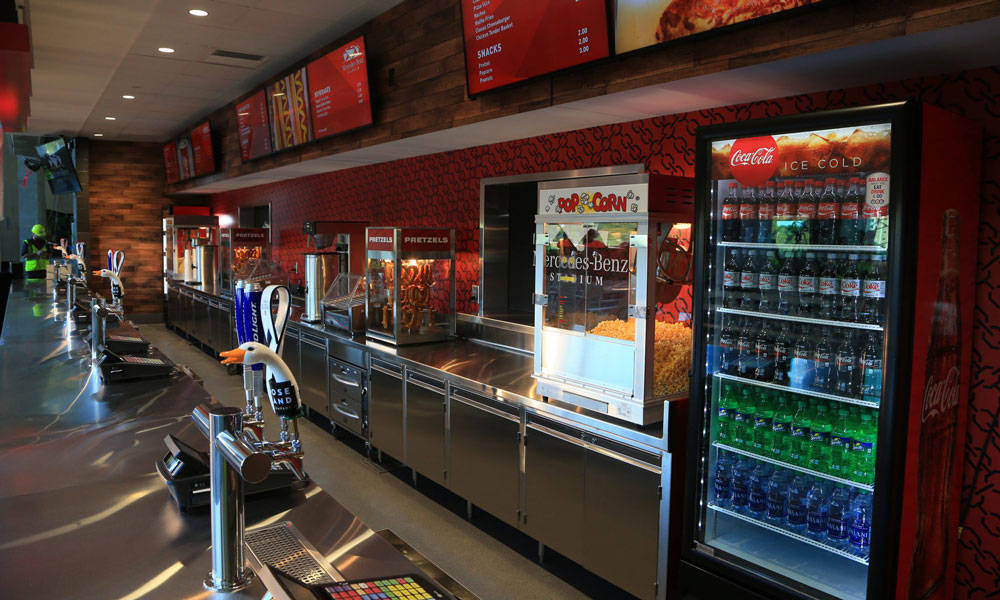
Is Your Conference Pricing Strategy Due for a Change?
The Atlanta Falcons’ fan-first pricing model sounded like a crazy idea when it was announced. But now that it’s bringing in more money than expected, associations may want to consider upending their conference pricing strategy too.
The other day I stumbled upon a Forbes.com article about how the Atlanta Falcon’s “Fan-First Pricing” model has yielded a number of unexpected benefits.
If you’re like me and have never heard of it before, here’s a quick rundown: When Mercedes-Benz Stadium (home to the NFL’s Falcons and Major League Soccer’s Atlanta United) opened in 2017, it introduced a “fan-first” food and beverage menu that featured the lowest prices of all major American professional sports teams.
How low? Two bucks for unlimited Coca-Cola in a refillable cup, bottled water, a hot dog, a pretzel, or popcorn; $3 for waffle fries, a slice of pizza, or nachos with cheese; and $5 for a Bud Light or a cheeseburger. Those prices also included tax.
While many said this approach was crazy and almost guaranteed a loss, the numbers reveal it was an overwhelming first-year success. At the Sports Business Journal‘s 2018 AXS Sports Facilities & Franchises conference earlier this month, Falcons CEO Rich McKay reported that although food and beverage prices were 50 percent lower than the previous year, fans spent 16 percent more.
Plus, the team not only made more money by lowering prices, but the move also had unforeseen effects on the entire gameday experience. For instance, since fans were no longer deterred by high concession prices, 6,000 more of them entered the stadium two hours before the game, and because they could take advantage of cheaper food and beverage options, merchandise sales were up almost 90 percent.
Unlike NFL teams, association conferences don’t rely on food and beverage and merchandise sales to boost their bottom line. But they do rely on registration fees—and the Falcons pricing strategy is a good reminder that switching it up and doing something your competitors may consider crazy can pay off.
For instance, would you ever consider taking a “pay what you want” approach to your registration fees? That’s what the College Art Association did with its Pay as You Wish day pass for its 2017 annual conference in New York City.
The pass provided an affordable option for members who couldn’t cover full registration and introduced nonmembers to CAA; it worked particularly well for independent artists, university faculty, and students. In the end, about 1,500 people took advantage of the day pass, each paying an average of around $22.
Truthfully, a “pay what you want” model probably isn’t a viable option for most associations. That’s because they have meeting-related costs to cover and revenue projections to adhere to.
But that doesn’t mean there’s no wiggle room. After assessing registration data from prior meetings, for example, you might determine that early-bird pricing is a losing venture for your organization and eliminate that option. In its place, you might launch a “late bird” registration fee. Or, instead of offering various registration discounts to different audience segments, you could decide every single attendee will pay the same flat-rate price. Heck, maybe your association could introduce its own fan-first pricing model. Could it compete with $2 refillable soft drinks? That would be tough.
No matter what route you take, a smart pricing strategy can guarantee that your attendees will return year after year. That’s another benefit the Falcons saw from their fan-first approach: Post-game surveys revealed that attendees, especially families, had a strong intent to return for a future game.
Have you experimented with different pricing models at your meetings and conferences? Tell us about it in the comments below.
Mercedes-Benz Stadium, noted for its low concession prices. (Handout photo)






Comments